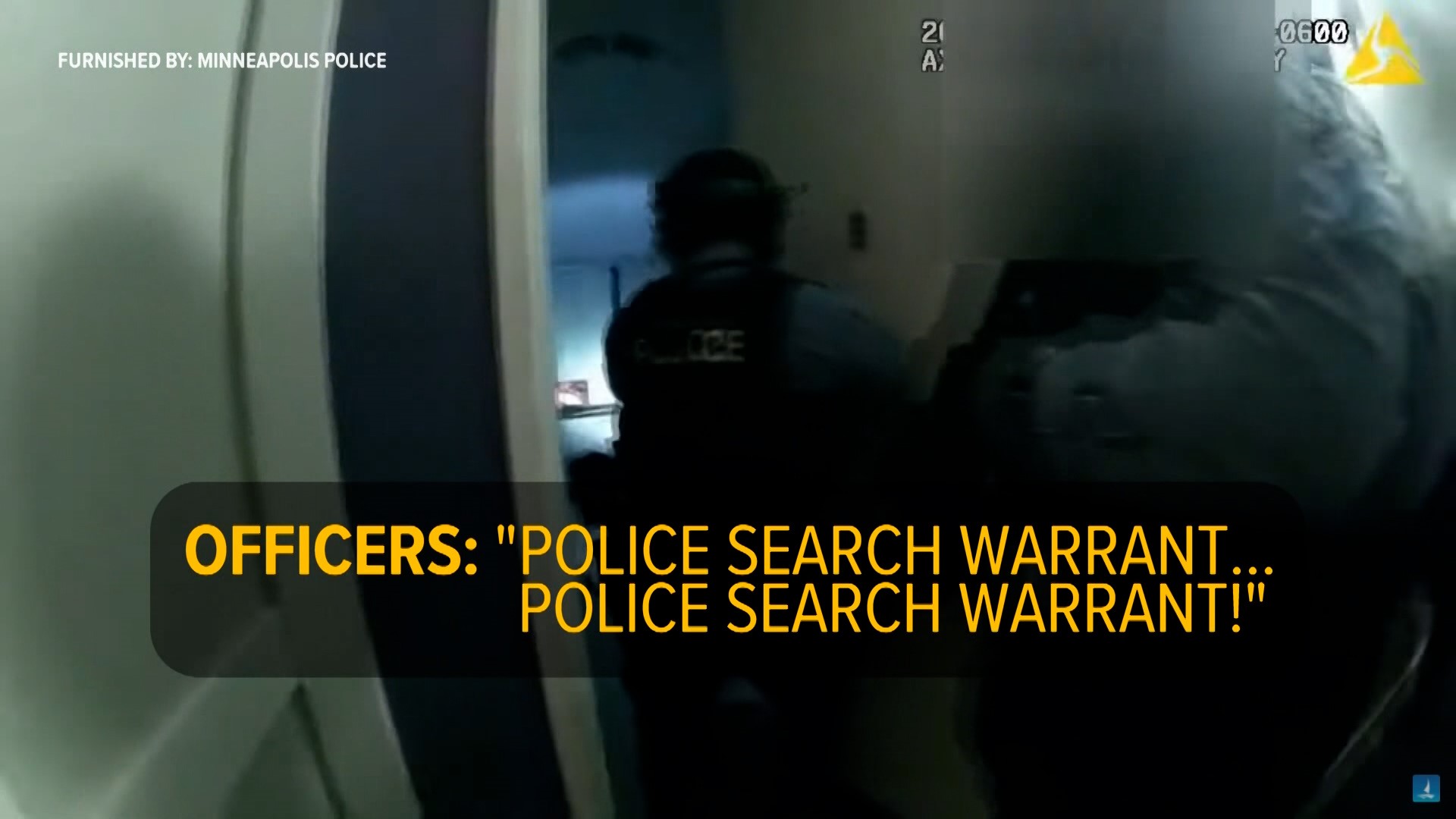MINNEAPOLIS, Minnesota — The fatal police shooting of Amir Locke has put a spotlight once again on no-knock warrant policies.
City Council Member Jeremiah Ellison, chair of the Policy & Government Oversight Committee, is bringing in experts Monday to lead a discussion on the issue.
"No knock warrants are extremely dangerous. They have a history of being dangerous. They're dangerous for the police and for the people whose residence is being invaded," said Rachel Moran, an associate professor at the University of St. Thomas School of Law. "So they should be limited and there obviously have been some efforts in the past couple years in Minnesota to limit them."
Moran, a policing scholar, will be joined by UST law student Sarah Murtada and the attorneys representing Locke's family: Ben Crump, Jeff Storms and Antonio Romanucci.
Moran will be walking council members through both Mayor Jacob Frey's November 2020 policy and the recent moratorium on both requesting and executing no-knock warrants. Moran said neither are a ban on the practice.
In regards to the city's no-knock policy for the past 15 months, Moran said, "I would say that the efforts are not nearly as fulsome as they could be. Particularly when you compare St. Paul Police Department's use to Minneapolis you see that some of this seems to be just a preference by the police here in Minneapolis to use these warrants likely more than they should or need to."
According to a press release, the focus of the committee presentation will be to gain insight on current policies and next steps to guarantee the effectiveness of these policies.
Watch the City of Minneapolis Policy & Government Oversight Committee discussion on no-knock warrants below:
Meanwhile, Mayor Frey and Minneapolis Police Department leadership announced last week they will be working with national experts DeRay McKesson of Campaign Zero and Dr. Pete Kraska of Eastern Kentucky University to review and suggest revisions to the department's policy.
McKesson leads Campaign Zero — an activist-led organization that's focused on structural change to end police violence.
"We're working with the city of Minneapolis to tighten up the execution of all search warrants. This is not only about no-knock warrants but the two main warrant types... knock and announce and no-knocks can turn into no-knock raids and we're working to shore that up," McKesson said.
On Friday, Campaign Zero did a new review of the city's warrant policy. When compared to Campaign Zero's model legislation, Minneapolis scored 5.5 out of 15.
"The easiest one on the road to 15... the wait times. So requiring officers to wait at least 30 seconds before even any attempt for forced entry in a situation," McKesson explained.
Other proposals include ending no-knocks except in extreme circumstances, tightening up the search warrant application, and requiring all search warrants be executed between 9 a.m. to 7 p.m.
You can learn more about the city's score based on Campaign Zero's policy rubric, here.
"The mayor does seem open to making the changes. We will start meeting early this week I believe to start the meetings about this and I'm hopeful," McKesson said. "I think we will put the pressure on to make sure that these changes in policy happen at the most detailed level to make sure that people's lives are saved in the future."
Monday's virtual City Council committee meeting will start at 1:30 p.m. and can be viewed on City Council TV or the city's Youtube channel. According to a press release, members have invited Mayor Frey to participate in the meeting.
Watch: A coalition of Black women and mothers demand police accountability and justice for Amir Locke in a gathering at Minneapolis City Hall:

